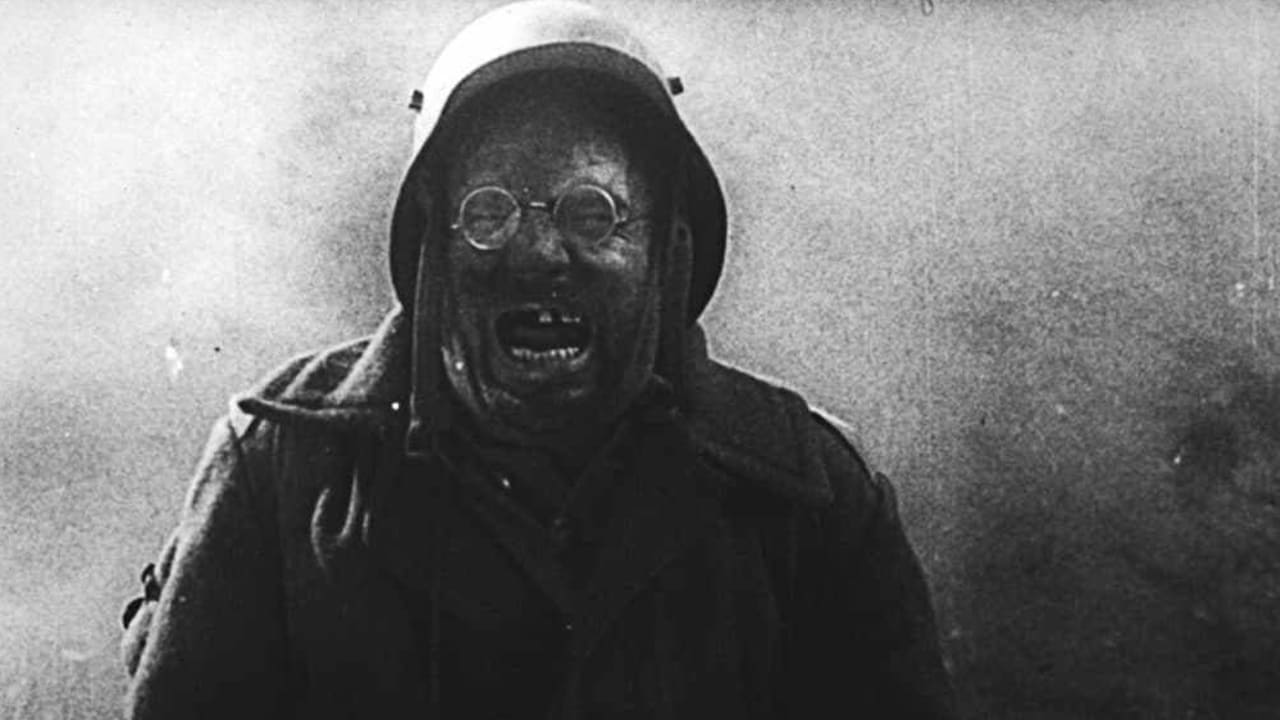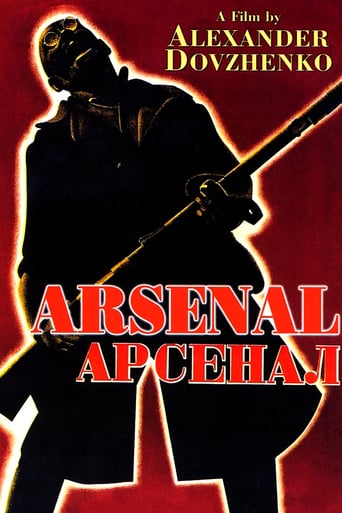Hellen
I like the storyline of this show,it attract me so much
PiraBit
if their story seems completely bonkers, almost like a feverish work of fiction, you ain't heard nothing yet.
FirstWitch
A movie that not only functions as a solid scarefest but a razor-sharp satire.
Robert Joyner
The plot isn't so bad, but the pace of storytelling is too slow which makes people bored. Certain moments are so obvious and unnecessary for the main plot. I would've fast-forwarded those moments if it was an online streaming. The ending looks like implying a sequel, not sure if this movie will get one
Lee Eisenberg
It goes without saying that silent cinema requires emphasis on the imagery. Alexander Dovzhenko's "Arsenal" is no exception. The look back at World War I over the past year should draw attention to this movie. Like Lewis Milestone's "All Quiet on the Western Front", this movie looks at the futility of war. The focus in the Kiev Arsenal January Uprising in 1918. Probably the most effective scene is the laughing gas: a man artificially laughs while surrounded by all manner of horror, a perfect metaphor for the disconnect between the image and reality of war.The only other Dovzhenko movie that I've seen is "Earth". I understand that "Arsenal" and "Earth" are the second and third installments of his Ukraine Trilogy. I'll have to see "Zvenigora", as well as the rest of Dovzhenko's movies. Despite the obvious propaganda, this is still a movie that you have to see just for the imagery if nothing else. Like Sergei Eisenstein's "Battleship Potemkin", it contains some of the most unforgettable images in cinema history. Definitely see it.
Teodor Georgiev
While I can understand why Arsenal is considered historic, it has not aged well. The scenes at the beginning of the film are confusing - we expect the film to be about the mother, only to find out she has relatively little to do with the film. By the time the main protagonist (Timosh) is established, a good chunk of the movie has passed. The acting is usually superb but drops when it should be at its strongest. It is hard to take the scene with the laughing gas seriously given how obviously the man is just acting. He doesn't move his arms or his body, and seems to only fall to the ground when he's taken off and put back on his glasses a certain number of times. Thankfully, scenes at the end of the movie redeem this level of acting. I'm also not sure what genre the director was going for. The military scenes suggested it to be an action movie, but besides those, I didn't see anything exciting. The movie then tries to be dramatic when one of the characters is about to shoot another in the back of the head, but can't manage. This had to be my favorite scene simply due to its originality. Even then, during the final few moments, when Timosh is being shot at, I couldn't take the movie seriously. His inability to die only reminded me of the final scene from V for Vendetta, and I found myself comparing him to a Ukranian V, with much less impressive equipment. This was the defining moment where the audience has to admit the movie is just too distant from modern audiences to be relatable. Everything it tries to do has already been re-done with better filming, special effects, and actors. It falls flat.
effigiebronze
I call this a near-masterpiece because of the basic purpose of it, which is propaganda. This film exists as agitprop, and while it contains phenomenal and ferocious imagery, ultimately the single-minded viewpoint hobbles it as art and undercuts its slight attempts at humanity. While it can be viewed as a Revolutionary piece, exhorting a 'proper' spirit of energy, knowing it was made by a Ukrainian in 1929 while the Stalinist regime was either plotting or bumbling their way to the Great Famine makes this film deeply questionable in a moral sense. The theme of a Ukrainian learning Revolutionary values in the Great War, then returning to destroy the 'corrupt' forces of 'old Ukraine' made me deeply uneasy. That said, the imagery and sequences in this (quite late) silent film are second to none. The toothless, laughing soldier is one of the most stunning single images ever committed to film; and the general pacing, with a deliberate, lingering sense of time, forces concentration on the set-pieces. Much of the film is brutal, inhuman, and cruel. This is both an accurate representation of the setting itself and of the type of violent us-vs.-them propaganda produced by the Soviets at the time. I find this film VERY unsettling from a moral standpoint, something I don't often find myself saying. But, again, the masterful and stunning imagery makes it well worth viewing more than once.
Spuzzlightyear
Another montage crazy film by the Russians here. Instead of Eisenstein laying it on thick, we have Alexander Dovzshenko getting into the act with 'Arsenal'. A film about, yes, the oppression of the people against the state! Instead of the Russians, this time we the Ukrainians becoming oppressed. Mainly set in a arsenal factory (!!) the people fight the threat of Government interference! Set to a frenetic score, Arsenal sure must have kept the editors busy with many crazy jump cuts going at a frenetic pace. What does it all mean? Not 100% sure, as some of the obvious symbolism just flew right by me. It's an OK movie if you're into that sort of stuff. (You know who you are).

